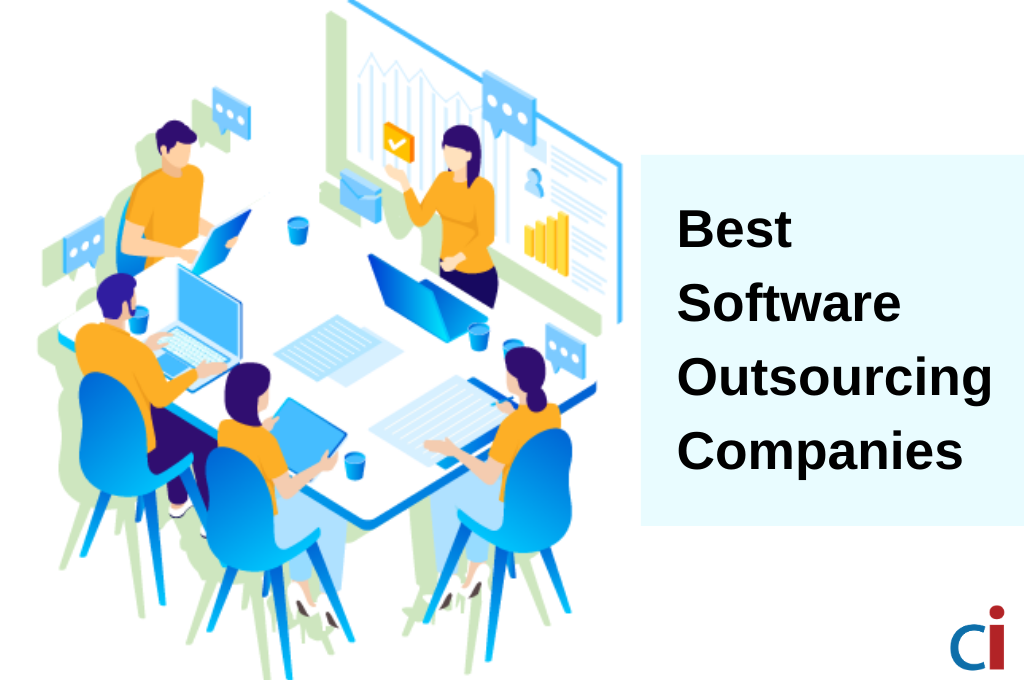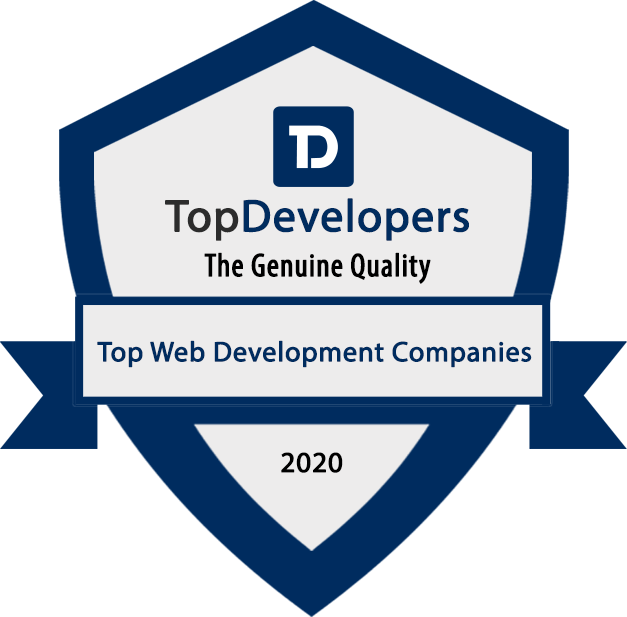When we talk about a minimum viable product as an approach to product development, there will be a unanimous nod that MVP offers countless benefits. It helps launch faster, gives an edge, helps validate product ideas, scale with user feedback and whatnot.
However, one of the most significant benefits offered by MVP development is its cost benefits.
In one of our previous posts, we discussed how businesses can save costs by taking the MVP development approach.
But, what if we tell you that there is a more cost-effective way to build a product than just MVP development? This said approach, combined with MVP development, can help you save big bucks on your journey to product development.
Won't this act like icing on the cake - you being able to save even more with your product development?
So, let’s talk about this cost-effective approach to building a minimum viable product - outsourcing MVP development.
In this write-up, we have shed light on the costs included in both in-house and outsourced MVP development and how much savings you can have with it. Along with it, we have also shared some other factors that help in saving costs when you choose to outsource MVP development.
So, let’s get started.

Cost of In-House MVP Development
In order to analyze the costs that you save on outsourcing MVP development, it is crucial that you know how much you’d have to pay if you choose to build your minimum viable product in-house. This section will highlight the major costs that come with in-house development.
There are several costs that are involved in building a minimum viable product. You require a number of resources and other things like expanding the infrastructure, setting up a new department, and much more. Let’s list some of those common costs involved in building a minimum viable product in-house.
Hiring Cost: The first cost involved in any in-house development is the cost of hiring. This is the sum you are willing to invest in the hiring process. This requires you to have technology specialists, CTOs to clear the requirements, or tech recruitment specialists who would go through hundreds of resumes to find the right fit. They would have to scrutinize through parameters like following agile software development, living within the same region or do they need to calculate the cost to relocate the developer, possessing the tech expertise, and much more.
Infrastructure Expansion: This is one of the highest costs for smaller organizations when they plan to build the MVP in-house. They need to set up new infrastructure in order to accommodate the new team that is being set up for the development work. Not only do they need to expand space but also require new hardware, server management, and a lot of other things in order to make a smooth development process.
Developer/s Salary: The next cost that comes when you are building a new product prototype in-house is the salary that you are expected to give them. It goes without saying that the salary given to in-house developers would be higher than the salary you pay when you hire remote developers.
.png?width=536&name=Untitled-Project%20(5).png)
Paid Benefits: In addition to the salary paid to the in-house developers, there are several paid benefits that are to be paid to the in-house team members. These could include paid leaves, sick leaves, holidays, medical cover, and much more.
IT Software & Hardware Expenses: When you set up a new infrastructure for your in-house team, you also add other costs like the cost of IT software and hardware that you are required to add for your developers. A completely new IT infrastructure needs to be built that is secure, robust, and scalable for when the MVP scales.
Tech Training: Many times, an MVP might require some new technology like AI, ML, blockchain, etc., for adding the latest feature or just a new framework expert for its particular feature, UX, front-end design, back-end integration, or simple API integration. You don’t hire a new tech expert for this small technology need. Rather, you train the in-house staff, which adds to the tech training.

Overhead Costs: Apart from all these costs, there are other overhead costs involved in the in-house hiring of developers for building the MVP. These could lead up to 25% of the actual developer salary.
All of these costs together, come out to be around $170,720 when you are building a minimum viable product in-house. We’ve calculated all of these costs in one of our previous articles; you can check it out here.
How Much Does MVP Development Cost in 2021
Cost of Outsourcing MVP Development
We have just covered the costs that are involved in building a minimum viable product in-house. It’s time we focus on the costs that one would incur if the same development is done by outsourcing to an offshore IT outsourcing company. These are the costs that you are supposed to pay when you hire an offshore development company to build the MVP software right from defining scope to launch. Let’s have a look at those:
Overall Remote Team Salary: The next cost that comes in is the salary that you pay to the dedicated team of remote developers. This includes the salary of all the remote team members, including the developers, designers, project managers, QA engineers, etc.
.png?width=536&name=Untitled-Project%20(6).png)
Hiring Cost: As you would require to hire in-house developers, a similar cost would be required to find an offshore MVP development company. You would need someone to invest some days to find the ideal company for building the MVP. This comes out to be a lot easier than if you hire individual remote developers to build your team.
Transition Cost: This is the extra cost that you incur due to the time spent on knowledge transfer. Be it about the tools you use, the way you work, your methodologies, the ideology, processes, codes, or other things. This might delay the development process by a day or two, which might be added to the overall cost of outsourcing MVP development.
When calculated, the cost of outsourcing MVP development turns out to be much lower than that of in-house development. We have already done all the calculations in one of our previous blogs, which you can check out here:
How much cost can you save with outsourcing software development?
Here, we were able to see that the cost of outsourcing MVP development comes around $74,000, which includes the cost of developer/s fees, knowledge transfer, and hiring.
Cost you Save On MVP Development Outsourcing
Now that we know the cost of in-house MVP development vs. outsourced, we can easily calculate how much savings we can make.
Cost of in-house MVP development: $170,720
Cost of outsourcing MVP development: $74,000
Cost savings: $170,720 - $70,000 = $96,720
Other Factors Leading To Cost Savings With Outsourcing
Not only do you save on the actual costs of development with outsourcing, but there are also other factors too that ultimately lead to cost savings. However, these cost savings are not immediate or direct ones. You start seeing these costs either during the transition or after launch. So, let’s check these out.
Experienced Professionals At Lower Cost
The biggest cost-benefit of outsourcing MVP development is that you hire seasoned professionals at a very low cost. In fact, the amount that you might be paying an in-house developer from your region per hour might even pay for a complete team’s hourly costs in an offshore location.

Most of the IT outsourcing companies in India have complete teams comprising experienced, mid-level, junior developers, project managers, UI/UX designers, QA engineers, BI engineers, and others to make up the complete team. All these are handpicked after complete security, and the companies let you interview them too before hiring. Hence, you get a two-step interview process that facilitates the best selection.
Saved Training Costs
What happens when you hire in-house developers but need a new tech expert for building a microservice or integrating a third-party module? You don’t go around hiring tech experts for a one or two weeks job. You train the in-house developers on that particular technology, framework, or library. However, this adds to the cost.
When outsourcing MVP development, everything is taken care of by the external team you hire for building the product. They have complete teams with a majority of the technology experts. So, depending on your product prototype requirements, they can quickly share resumes of those best fit for that tech need.
You neither need to invest extra time in finding experts for that particular technology nor to train the existing developers. Outsourcing allows you to plug any tech gap at a lower cost.
Faster Time To Market
Another benefit in costs that one enjoys with outsourcing MVP development is that they are able to launch their product faster. This gives them a better chance at enticing the audience and getting a more enthusiastic response from the users. A faster launch might add to the profits but how does it save costs?
Cost savings happen with a faster release due to the fact that you launch faster and receive feedback faster. This means you are able to implement the feedback at the initial phase of the development itself.

Additionally, you also save on the hours worked for the development; thus, saving on the fees you pay for the hours worked.
Reduced Financial Risk
Another factor that adds to the cost savings with outsourcing is the reduced risk. There are a lot of financial risks involved in launching a new idea, even if it is in the MVP form. Instead of investing all funding on MVP development, businesses can actually profit by outsourcing it to a third-party development firm.
It would lower the amount invested, and even if the idea doesn’t succeed in the market despite launching the minimum marketable product after MVP, the loss wouldn’t be huge.
Technical Consultation & Expertise
MVP approach is commonly adopted by startups and product companies. However, the majority of such companies are new and do not come with the required expertise to understand the technical aspects of development. Improper knowledge of technologies without consulting the CTO can lead to major losses despite having a dream MVP development team.
Outsourcing ensures that you not only find a team for your MVP development at a much lower cost but also get access to technical consultation. One can even find several offshore companies that are available for hiring as technical co-founders to help the product grow. They offer complete consultation regarding technologies, frameworks, libraries, digital tech, versions, etc.

You need not hire a CTO for your company, specifically when you have an offshore company as your technology partner. They will work as a CTO for you and assist in all technology decisions.
Continued Focus On Other Business Processes
For any product, development is not the end game. There are a number of other tasks that need to be taken care of pre-post and during the development phase. This includes ideation, evaluation, marketing, and various other business processes. Moreover, the team also needs to analyze other business processes.
Developing the product in-house can overwhelm the teams and might even hinder them from focusing on other core business functions like entertaining customers, handling the marketing, analyzing market demand, or even expanding the offerings. By getting outsourced product development for the prototype, you can continue focusing on the other important processes to increase revenues or sales.
Outsource MVP Development To A Trusted Partner
The cost factor is an obvious advantage of outsourcing MVP development to offshore professionals. However, we just highlighted some of the other factors that also help in saving costs with outsourcing.
If you are also looking for a reliable partner to build your MVP, we can be your technology partner, acting as your technical co-founder or CTO. We have assisted several startups in building several products or taking their on-paper idea to new heights. Not just that, we also empower product companies to plug any technology gap in their MVP development process.
With over 300 technology enthusiasts on board, we can help you plug any type of technology gap. Further, we can also provide complete support when it comes to any aspect of technology - from development to launch to scaling and further beyond.
Banner Image: Freepik


















.png)













